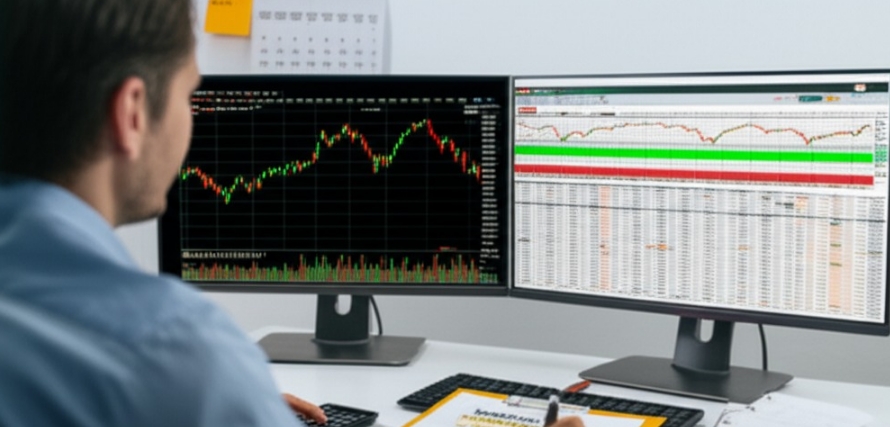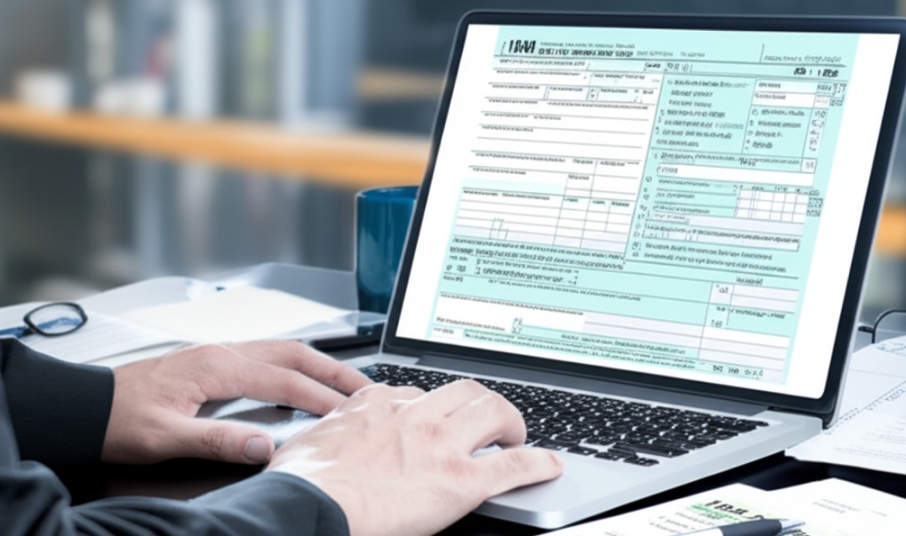Table of contents
If you’ve dipped your toes into the world of currency trading, you’ve likely asked: “Bhai, tax lagta hai kya?” Truth is, Forex Trading Tax in India isn’t just some small print in the rulebook—it can impact your profits in a big way. And with more Indians testing the Forex waters through apps and online platforms, understanding tax rules is no longer optional.
As a CA once told me, “The Income Tax Department may be slow, but it never forgets.” This guide clears the fog—what trades are taxed, how much you owe, how to file it, and what can go wrong if you ignore it.
No jargon. No lectures. Just straight talk about staying on the right side of the law—and making the most of your earnings.
Is Forex Trading Legal in India?
Navigating the legality of forex trading in India often feels like decoding a technical manual. Mr. Rajeev Thakur, a veteran compliance advisor for currency traders, once said in a panel hosted by ET Now, “The biggest mistake new traders make is assuming that if the app lets you trade, it must be legal.” That is far from the truth.
The legality of forex trading in India is governed strictly by the Foreign Exchange Management Act (FEMA) and enforced by the Reserve Bank of India (RBI) and the Securities and Exchange Board of India (SEBI). These are not just passive regulators—they actively monitor and control every aspect of foreign exchange to protect the value of the Indian Rupee.
Key legal distinctions to note:
Only INR-based currency derivatives are allowed on Indian exchanges such as NSE and BSE.
Trading in foreign currency pairs through over-the-counter (OTC) markets or unregulated forex trading platforms is not permitted for residents.
Authorized dealers, often banks and licensed institutions, are the only entities allowed to deal in foreign exchange on behalf of individuals.
Even experienced traders sometimes confuse capital account convertibility with current account convertibility. While current account transactions are broadly allowed, capital account transactions remain restricted under FEMA—making offshore speculative forex trading a punishable offense.
The RBI also limits outward forex remittances through the Liberalized Remittance Scheme (LRS). Misusing this scheme for speculative forex trades may lead to audits or penalties.
A young Mumbai-based trader, Ritesh S., shared that he lost ₹30,000 on an unregulated platform before realizing it violated Indian laws. “It looked so legit—until my bank account got flagged for unusual transfers,” he said.
Compliance Tip: Always trade via SEBI-registered brokers offering INR pairs. Avoid foreign brokers without RBI clearance.
Understanding legality is not about ticking boxes—it is about protecting your capital, your reputation, and your peace of mind.
Forex Trading Tax Rules India

Speculative vs Non-Speculative Income
In Forex trading, how your income is categorized significantly affects your tax treatment.
Speculative income generally refers to intraday or short-term trades that are considered risky bets, taxed at normal slab rates under business income.
Non-speculative income, on the other hand, comes from longer-term or delivery-based trades and can fall under capital gains or other heads depending on trade nature.
Here's a quick comparison:
| Income Type | Tax Category | Common Examples |
|---|---|---|
| Speculative Income | Business Income | Intraday currency trades |
| Non-Speculative | Capital Gains | Held currency options |
Tax Rules for Foreign Brokers
Trading with foreign brokers? The tax rules change a bit.
Here’s what you need to know:
You may have to self-report earnings as foreign income.
Many tax treaties exist between India and other countries—under Double Taxation Avoidance Agreements (DTAAs)—but using them means you’ll need to file additional tax forms like Form 67.
Authorities are cracking down on tax evasion, so don’t think you can sneak past unnoticed—especially with increasing cross-border tax audits and data sharing!
“Forex traders must stay informed on foreign broker taxation to avoid legal snags,” says Priya Khurana, Chartered Accountant, Mumbai.
Taxation of Currency Derivatives
Let’s keep it simple—currency derivatives like futures and options contracts fall under non-speculative business income if you trade through recognized Indian exchanges.
But here’s the kicker:
Income is added to your total taxable income.
Taxed at slab rates, and
You can deduct expenses like internet, software, or consultant fees.
Don’t get confused—swaps and forwards may fall into different categories depending on structure and intent.
If you're doing high-frequency or institutional-scale trading, best get a pro to look over your tax implications before you file.
Which Forex Trading Profits Are Taxable?

Short-Term Forex Gains
Short-term profits from day trading or scalping on currency pairs are considered speculative income in India and are taxed accordingly. Since these trades often happen within minutes or hours, traders rely on technical analysis, leverage, and tight spreads to earn a quick pip profit. But guess what? The Income Tax Department doesn’t care how small your margin was—if there’s profit, it’s taxable.
“Speculative forex income is taxed at your normal slab rate,” says CA Mukul Jain, a Delhi-based tax advisor specializing in capital markets.
Long-Term Forex Investments
Unlike fast-paced trading, position trading or swing trading focuses on long-term growth, often relying on fundamental analysis of interest rates, central bank policies, and macroeconomic trends. These profits may be treated differently under the tax code, depending on trade nature and duration. If your investments are with registered Indian brokers, taxation falls under capital gains or business income.
Earnings from Demo Contests
Demo contests might use virtual money, but if you win real prize money, it’s very much taxable. Top forex brokers run these trading competitions to promote platforms. Just because you didn’t risk real cash doesn’t mean the government won’t take its cut from your winnings.
Incentives and Referral Income
If you’re earning from a referral program or affiliate marketing by sharing your referral link, that’s passive income. Commissions, bonuses, and incentives from forex brokers are taxable under “income from other sources.”
| Source Type | Nature | Tax Treatment |
|---|---|---|
| Referral Bonus | Passive | Taxable in full |
| Affiliate Commission | Business | Taxable under PGBP |
| Contest Prize | Misc. Income | Taxable in full |
Forex Trading India Tax Slabs Explained
Tax Slabs for Individuals
India’s Income Tax slabs determine how much individual taxpayers owe based on their annual income. If you're earning from forex trading as an individual (not through a company), your profits are generally clubbed with other income sources and taxed accordingly.
For incomes up to ₹2.5 lakh – zero tax
₹2.5 lakh to ₹5 lakh – 5% tax
₹5 lakh to ₹10 lakh – 20% tax
Above ₹10 lakh – 30% tax
These tax brackets apply under the old regime, where deductions like Section 80C are allowed. Traders can also opt for the new regime, which has lower rates but fewer exemptions. Taxable income includes all realized profits—so keep a tab on your earnings, especially when they start stacking up!

Tax Impact by Trade Volume
Let’s be real—bigger trades mean bigger tax worries. If you’re doing large-volume forex trades regularly, your activity may shift from casual investing to something resembling a business in the eyes of tax authorities.
Higher trade volume = higher audit likelihood.
Regular high-frequency trades might push you into presumptive taxation.
Your tax burden can grow if you're not structuring trades efficiently.
“When volume goes up, so does the scrutiny,” says Amit Maheshwari, tax partner at AKM Global. “It’s not just about the profit—it's about the pattern.”
How to File Forex Trading Tax in India?
Choosing the Correct ITR Form
Selecting the right ITR Form depends on whether you're filing as an individual or business and on the type of Forex income you have.
ITR-1 (Sahaj) is for salaried individuals with simple income sources (does not apply if foreign income exists).
ITR-2 suits individuals earning from capital gains or foreign sources, including Forex trading.
ITR-3 is used if Forex trading is considered a business activity.
Tip: Check your Form 16, Form 26AS, and bank statements to align with the correct Tax Form.
Declaring Forex Income Correctly
You’ve got foreign exchange gains? Great—but the taxman wants to hear about it.
Forex income is often taxed as either:
Speculative income (intra-day trades) – taxed at regular income slab rates.
Non-speculative/business income – when Forex is a full-time gig.
Make sure to declare capital gains, conversion profits, or foreign currency swaps under the right section of your Tax Return. Don’t wing it—reporting Forex income wrong can trigger audits.
Documents Required for Tax Filing
Here's what you'll need to complete your Income Tax Return:
| Document Type | Purpose | Key Use |
|---|---|---|
| Form 26AS | Tax credit statement | Confirms TDS and advance tax paid |
| Bank Statements | Track deposits/withdrawals | Evidence of Forex transactions |
| Investment Proofs | Claim deductions under 80C/D | Reduces taxable income |
"The key to stress-free Forex tax filing is preparation. Get your documents in order and always report income accurately." — Ankit Jain, Chartered Accountant
Forex Trading Penalties in India
Fines for Incorrect Reporting
Mess up your forex income reports and you're flirting with serious fines. Misreporting or omitting earnings—intentionally or not—can lead to penalties under India’s Income Tax Act, and in global scenarios, it can even trigger compliance flags under international regulations like the Sarbanes-Oxley Act or SEC investigations.
For individual traders, the penalties may start at ₹10,000 and go much higher depending on the nature of the misreporting. The more serious the misconduct—like fraud or manipulation—the heavier the hit.
Common Reporting Mistakes:
Forgetting to declare profits from overseas brokers
Classifying speculative income incorrectly
Misstating loss carry-forwards
According to chartered accountant R. Gupta:
“Most first-time traders aren’t aware that misreporting is treated as non-compliance, not a minor slip-up. That misunderstanding leads to unnecessary penalties.”
Audit Risks in Forex Trading
Forex trading isn't invisible—especially when large sums move across borders. The bigger your trades or the more frequent they are, the higher your audit risk.
High-Volume Trades: Red flags go up when traders move volumes that don't align with declared income.
Lack of Documentation: Skipping detailed financial reporting can raise eyebrows during a financial audit.
Offshore Broker Use: Trading through foreign platforms without declaring accounts could lead to regulatory scrutiny.
| Trade Volume (Monthly) | Audit Risk Level | Documentation Required |
|---|---|---|
| Under ₹50,000 | Low | Basic records |
| ₹50,000 – ₹5,00,000 | Medium | Trade statements, PAN |
| ₹5,00,000+ | High | Detailed audit trail |
Forex Trading India Tax Saving Tips
Using Business Expense Deductions
You’d be surprised how many costs can qualify as business expenses—from trading software to your internet bill. These are potential deductions under the tax code if you're filing as a business or professional trader.
Operating expenses like office rent and electricity bills? Write-offs.
Capital expenses such as a new laptop? Consider depreciation or amortization.
Track everything. Good business accounting can mean huge tax deductions.
Always consult the latest IRS-inspired rules in India’s context.

Offsetting Losses Against Gains
This tactic—called tax-loss harvesting—isn’t just for Wall Street whales.
Net your capital gains and capital losses each year.
If your investment losses exceed gains, you can deduct from taxable income.
Be careful with the wash sale rule—you can't buy the same asset too soon.
It’s smart portfolio management that also reduces your tax liability.
Timing Withdrawals Strategically
Ever heard of someone getting taxed more just because they cashed out at the wrong time? Yeah, it happens.
Use tax planning to avoid early withdrawal penalties from accounts like IRA, Roth IRA, or even tax-deferred accounts. If you’re nearing retirement, consider the timing of your RMDs (Required Minimum Distributions). A thoughtful distribution strategy saves real money.
Avoiding Double Taxation Issues
“A well-structured global trading setup can prevent double taxation before it begins.”
— Ankit Mehra, Tax Advisor, NSE-Certified
| Country | Tax Treaty Status | Foreign Tax Credit Available |
|---|---|---|
| India–USA | Yes | Yes |
| India–UAE | No | No |
| India–UK | Yes | Yes |
Conclusion
Trading in Forex isn't just about charts and candlesticks—it’s also about staying on the right side of the taxman. Mess that up, and you could end up learning the hard way, like many traders who thought, “Who’s watching?” until the penalty notice showed up.
As the Income Tax Department says, “Ignorance of the law is no excuse.” So, play smart—keep records, file returns, and treat tax like any other risk on your trading dashboard.
Yes, Forex trading profits are taxable in India. The type of tax and the rate depend on the nature of the trading activity—whether it's speculative or non-speculative. Most intraday or leveraged trades fall under speculative income and are taxed at standard slab rates.
Speculative income: Taxed at your applicable income slab rate.
Non-speculative income (like delivery-based trades): Also taxed as per slab but may allow for deductions.
In both cases, accurate bookkeeping and classification are essential.
No, Indian residents are not legally allowed to trade Forex through international brokers under FEMA regulations. Only INR-paired Forex trades via SEBI-registered Indian brokers are permitted for retail traders.
Speculative losses can only be set off against speculative gains.
Non-speculative losses can be set off against both speculative and non-speculative income.
Losses can be carried forward for up to 4–8 years depending on the category.
Forex income must be declared under the "Income from Business or Profession" section of your ITR form. Traders often need to use ITR-3 or ITR-4, depending on the scale of their activity and whether they opt for presumptive taxation.
Only if the Forex trading income is sourced in India. If the income is earned overseas and not repatriated, NRIs may be taxed in the country of residence instead. However, tax residency status and DTAA (Double Taxation Avoidance Agreement) rules must be considered.
Use presumptive taxation if eligible under Section 44AD.
Claim allowable business expenses (internet, software, advisory fees).
Maintain digital records to support income/losses claimed.
Avoid illegal platforms to reduce audit risk.


